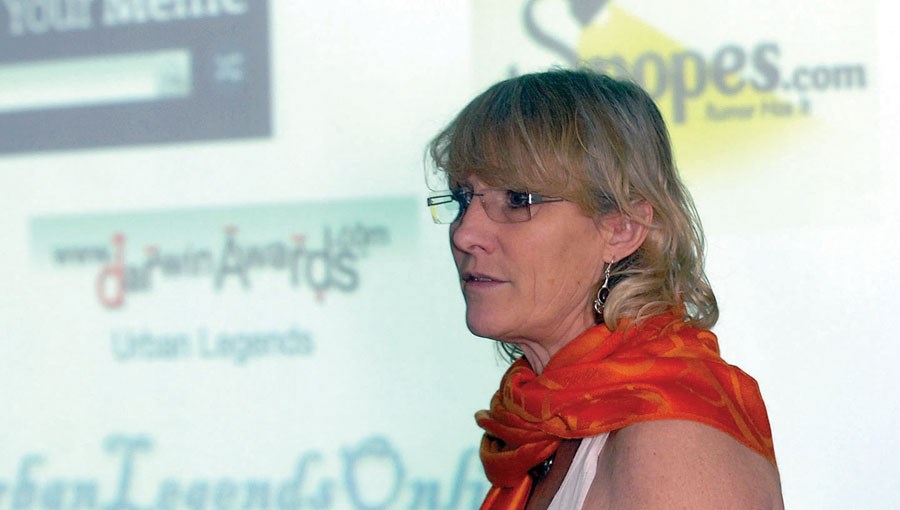Carolyn Enon brought her kids to the library Saturday, but it wasn't just to pick up a few books for them to read over spring break.
She wanted her seven-year-old son and 10-year-old daughter to hear and see what youth advocate Merlyn Horton had to teach them about Internet safety and Horton's Safe OnLine Outreach Society (SOLOS) hour-long presentation provided news Enon can use as well.
"We don't let our kids on the Internet very often but when we do I just want them to know what's out there," said Enon. "I don't have a Facebook account so I think it's important for me to know what potential dangers are out there for my kids to face. If I don't know about them I can't help protect them.
"My greatest fear is just the thought that you think you're talking to a friend and it turns out it's some creepy middle-aged man trying to find out where you live and when you're home by yourself. I certainly hope they are able to be smart about the decisions they make but unfortunately teenagers and young children tend to be innocent. Parents use the computer as a babysitter and they have no idea their kids are doing things like posting videos online."
Horton, a former street youth worker in the Lower Mainland, started SOLOS in 1992 and tours the province constantly to speak at school assemblies to warn kids of the dangers the Internet poses. She pointed to Facebook, because of its mass appeal, and the emerging popularity of Twitter, Tumblr, Instagram, and Snapchat as the worst offenders in exposing teens to privacy invasion.
"What I find most alarming is 40 per cent of kids think what they post online is anonymous, but it's public and it's permanent -- think before you post," Horton told a handful of people at the library's Bob Harkins branch.
"Almost all the data on Facebook is made public by default when you set up your account. You should use the privacy settings like seat belts. The general account settings have seven subtopics and in each them there are between five and 15 adjustments you can make. Facebook is like a Ferrari, you have little kids driving a complex machine without any idea how to make it safer or how to adjust it."
Horton also warned of the dangers of using unsecured wireless connections to access online accounts with portable devices. Chances are, someone is watching your every keystroke.
"Think of user names and passwords like a toothbrush, don't share them with anybody," said Horton. "Change your password every year and have a different password for each account. Teach your kids to sign up with virtual IDs. Use your first name twice when you fill out your name and for the postal code, use the RCMP station. Never use your real birthday."
She also warned of the dangers of teens sexting, using webcams or cell phones to take sexual images and distribute them online. If the person in the photo is under the age of 18, it's considered by law child pornography. Kids might think they are deleting them but those images still exist on a server, somewhere.
"It's illegal, even if it's a picture of yourself," Horton said. "Parents might even be held liable if its a phone they pay for. Kids need to know they can't take pictures of anyone naked. Anyone can steal those pictures. Part of the problem is teens don't perceive themselves as kids and they don't think of it as child porn.
"One of the biggest issues school administrators are dealing with is kids camming for each other and those images being distributed and escaping. You can see where the role modeling for porn is coming from."
She said it's up to parents to have meaningful conversations about their kids and their online conduct, how they treat each other online and why they have to keep their images safe. Horton is also concerned of the prevalence of violent and exploitive video games and the amount of time young children are spending on them.
"We're losing our boys to addiction to gaming, and parents are unable to find ways to turn it off," said Horton. "We have kids who are lacking in the ability to establish eye contact, shake hands with a stranger, or initiate a conversation with someone standing at a bus stop because they are being socialized differently."
The society's website at -- safeonlineoutreach.com -- offers articles geared to professionals, parents and kids. It also suggests links to other educational sites like sexualityandu.ca (sexual health), netsmartzkids.org (educational video games) and commonsensemedia.org (how to keep the Internet safe for kids).


